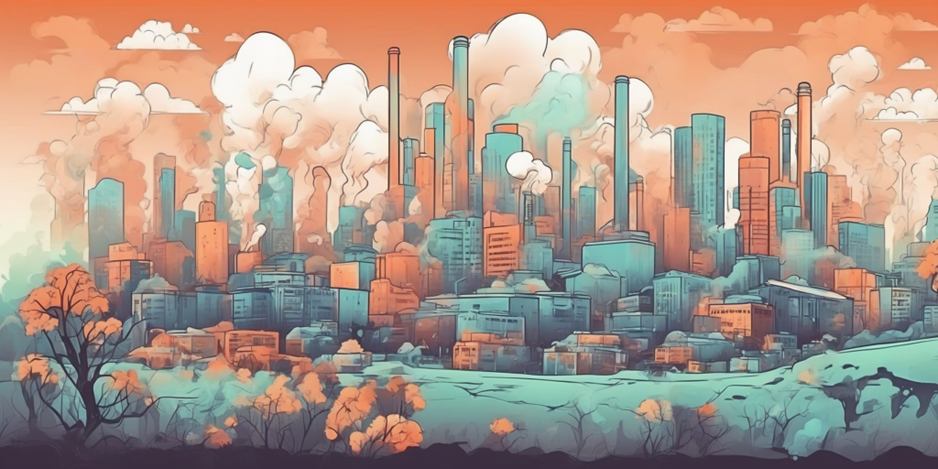The Challenges of Groundwater Contamination: Issues and Solutions
Groundwater contamination is a global concern requiring attention and viable remedies. This piece investigates the obstacles associated with controlling such pollution and suggests possible solutions. Through a data-driven approach, we delve into the severity of groundwater contamination, its extensive outcomes, and the urgency to act on it. We center our efforts on solutions, aiming to equip individuals, societies, and governments to counteract this environmental problem appropriately.
Causes of Groundwater Contamination
Industrial Activities
Factories and manufacturing units contribute notably to
groundwater pollution as they often generate hazardous chemicals and
pollutants. These harmful substances can filter into the ground and taint
nearby water bodies. Instances include poor disposal of industrial waste
leading to the discharge of heavy metal-laden and toxic substances into the
groundwater. Similarly, leakages or spills from storage containers and pipes
can also cause impurity.
These scenarios underline the tangible effects of industrial
operations on the quality of groundwater. Hence, it is vital to incorporate
efficient waste management and containment procedures.
Agricultural Practices
Farming procedures directly influence groundwater pollution.
The common use of fertilizers and pesticides on crops can be harmful as these
chemicals may leach into the soil and groundwater, infusing them with harmful
substances. Cases include overuse of nitrogen-based fertilizers leading to
increased nitrate levels in groundwater, which can cause several health issues.
In the same vein, poor storage and handlings of pesticides can result in
seepage into the groundwater.
Therefore, it is crucial for agriculturists to follow
sustainable farming methods like precision farming, crop rotation, and
integrated pest management. These techniques can minimize chemical use and
guard against groundwater pollution.
Read More: Striving For Groundwater Sustainability: A 21st Century Challenge
Improper Underground Storage Tanks
Undisciplined handling of Underground Storage Tanks can lead
to serious groundwater pollution. When not properly installed or maintained,
these tanks may leak perilous substances into the surrounding soil, eventually
tainting groundwater. Instances of such contamination include gasoline leakages
from these tanks, resulting in health-threatening situations like cancer and
respiratory problems.
It is thus urgent to practice appropriate installation and
maintenance to avoid such contamination and maintain our water resources.
Effects of Groundwater Contamination
Groundwater contamination can substantially harm the
environment and human health. It can result in the pollution of drinking water
bodies, compromising water quality and safety. High levels of heavy metals,
pesticides, and industrial chemicals in polluted groundwater can trigger
various health issues, including cancer and neurological disorders. It also
endangers the aquatic ecosystem, leading to a decrease in fish population and
biodiversity disruption.
Solutions to Mitigate Groundwater Contamination
Several solutions can help lessen groundwater contamination:
managing waste properly, enforcing regulations on underground storage tanks,
advancing sustainable agricultural practices, developing innovative treatment
technologies, and educating the public on responsible water use. Implementing
these practical solutions can protect groundwater sources from pollution and
ensure clean water for future generations.
Groundwater Contamination in Flint, Michigan
The situation in Flint, Michigan, is a stark reminder of the
potential risks tied to poor water management practices. The detection of
harmful substances in the water resulted in severe health risks for the local
population, including the risk of lead poisoning because of high lead levels in
the water supply. This underscores the need for regular water testing and
maintaining a solid infrastructure to avoid future occurrences.
Read More: Striving For Groundwater Sustainability: A 21st Century Challenge
Groundwater Contamination from Hydraulic Fracturing
Hydraulic fracturing or fracking, a process where water,
sand, and chemicals are pumped into the ground to extract natural gas, is
another source of groundwater pollution. Improper well construction or handling
can cause pollutants to seep into the groundwater, compromising drinking water
supplies. Multiple studies show elevated levels of methane and other substances
in groundwater near fracking sites, posing risks to both human health and the
environment.
Proper well construction, effective monitoring, and stringent
regulations are necessary to limit groundwater contamination from fracking.
Final thoughts
Groundwater pollution is a multifaceted issue rising from
diverse sources such as industrial actions, farming procedures, and improper
waste management. Detrimental to both human health and the environment,
contaminants can include toxic chemicals, pesticides, heavy metals, and
pathogens. It's crucial to identify and monitor pollution sources to prevent
further contamination and safeguard groundwater resources.
Adopting effective mitigation strategies, such as proper
waste management, regular monitoring, and utilizing advanced treatment
technologies, can help overcome groundwater contamination challenges and ensure
safe drinking water for current and future generations.

